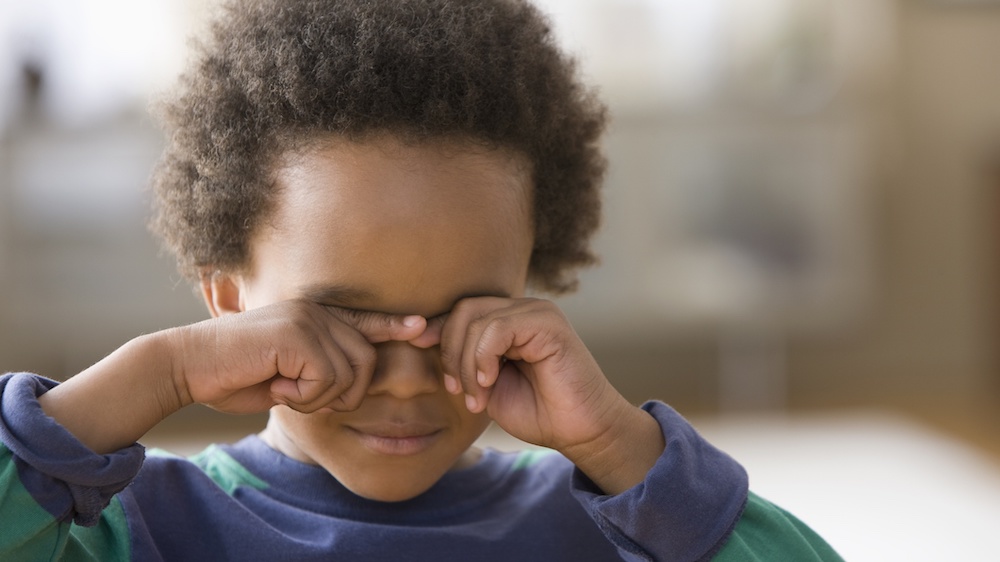If you’re interested in sharing your opinion on any cultural, political or personal topic, create an account here and check out our how-to post to learn more.
____
It’s early morning and you’re on an over-crowded train listening to music, reading a book, wondering what you’ll have for lunch or New York City people watching, which is then interrupted by, “Stop. Stop! If you don’t stop it right now, I'm gonna tear that ass up!”
This is an impatient mom yelling at her son riding the A train during our lovely morning commute. Sound familiar? We’ve all seen it over and over, and in most of our minds this is normal. In the described scene, the mom is disciplining her child because the child is “acting out.” Every time I see a child being hit, yelled at, disrespected and berated I’m always thinking to myself, “What could the child have possibly done to elicit such a rage-filled response?”
There shouldn’t be anything normal about a child being hit in public or in private. There shouldn’t be anything normal about physically or emotionally abusing a child. Just because something is the majority doesn’t make it OK to happen. But cultural conditioning makes it difficult to change our behaviors because of the viewpoint in popular culture.
If your best friend were to call you right now, saying their partner threatened them, and followed it up by punching them in the face, wouldn’t you be infuriated, ready to fight and defend your friend from the violence? Physical and emotional abuse is still abuse. Child or adult, it doesn’t matter who it’s happening to. It’s our responsibility to break cycles and find other ways to discipline children.
Aren’t we all trying to glow and level up? Isn’t that what our social media feeds are all about? The true level up is being able to have important conversations with children and communicate.
Children who receive love when they do well in the eyes of their parents, versus when they do poorly and receive verbally insensitive and physical punishment, will have a hard time knowing what a healthy relationship is. They’re indirectly being taught that love and abuse are able to happen at the same time. It doesn’t have to be this way; this world needs no more chaos.
Love and abuse can’t coexist in the same space — despite what we’re used to. It’s not up for debate, but it is up for discussion. Abuse creates feelings of guilt, shame and anger, while love creates feelings of happiness, respect and kindness.
Parenting is hard; I get it. The impatient mom on the train was only trying to get her son to respect her wishes of behaving. But we can make a conscious decision as a culture to choose other tools of discipline so our children can better respect themselves and others.
We owe it to our future to do better and lead differently; a future where the parent is patient and able to communicate in a healthy manner, creating a normal response to kids only being kids. Who else will advocate for our children? There’s another alternative besides having kids endure unnecessary psychological trauma with lasting effects equivalent to that of a child soldier. This is not an impossible change, it’s just different from most of our norm.
Imagine a generation of children whom the majority are well-adjusted, thriving, happy, successful, productive citizens of society. Like every generation before, we have a responsibility to lead and usher in a new wave of living and being for the betterment of our culture and the rest of humankind. We’re in a moment in time where we can choose to consciously change outdated paradigms.
We can make the shift from berating to building up our kids, creating healthier outcomes for them. They are looking up to us for clues. They need positive interactions and a peaceful environment that will foster high self-esteem, integrity and understanding. What a different world it would be if we could facilitate such a life for them.
